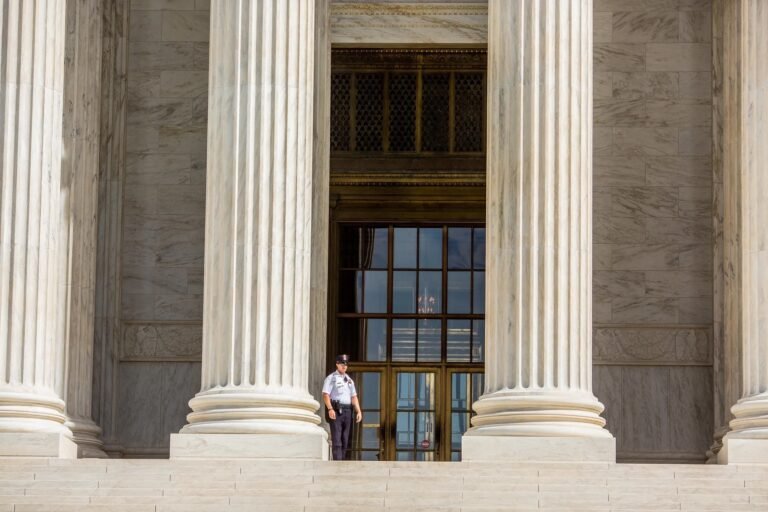Federal Rule of Civil Procedure 60(b) lists five specific reasons for which a court might reopen a judgment once it becomes final on appeal. It then closes with a catchall in Rule 60(b)(6) that authorizes reopening for “any other reason that justifies relief.” The court’s ruling in BLOM Bank SAL v. Honickman on Thursday reaffirms a high standard for that relief in an unsurprising decision that is unlikely to cause much of a stir.
Although the Supreme Court traditionally has required “extraordinary circumstances” to justify reopening under the catchall, the lower court here held that a more forgiving standard should apply when the disappointed litigant seeks reopening to file an amended complaint.
To provide context, the claimants are victims (and the families of victims) of Hamas attacks carried out more than two decades ago. They sued a large Lebanese bank under a federal statute that provides relief against those that aid and abet terrorist attacks, pointing to accounts Hamas members had at the bank.
A federal district court in New York and the U.S. Court of Appeals for the 2nd Circuit dismissed the complaint because it failed to allege sufficient awareness by the bank of the likelihood of terrorist attacks by its customers. When the victims tried to respond to the 2nd Circuit’s description of the proper pleading standard by amending their complaint, the district court dismissed the complaint a second time, pointing to the lack of extraordinary circumstances required to bring the complaint again.
The court of appeals, though, held that the district court was too strict, reasoning that it should have considered the “liberal amendment policy” of federal courts “in tandem” with its analysis of the “gauntlet” of Rule 60(b)(6).
On Thursday the court unanimously rejected the view of the lower court, with all but Justice Ketanji Brown Jackson joining every word of the opinion by Justice Clarence Thomas. Offering a methodical primer on Rule 60(b), Thomas began by explaining that “Rule 60(b) allows a party to seek relief from final judgment and reopen a case based on [five listed reasons,] mistake or excusable neglect, newly discovered evidence, fraud, or the void or prospectively inequitable status of a judgment.” Aside from that, the rule “also includes a ‘catchall’ provision … that allows a district court to reopen a case for ‘any other reason that justifies relief.’”
Thomas went on to say that the “text and structure … make clear that relief under” Rule 60(b)(6)’s “catchall” provision “is available only in narrow circumstances.” Because it covers “’any other reason’ that justifies relief,’ … Rule 60(b)(6) provides only grounds for relief not already covered by the preceding five paragraphs.”
For the type of “other reason” covered by the catchall, Thomas used two old cases to explain the “extraordinary circumstances” required to “justify reopening.” The first is Klapprott v. United States, a 1949 decision that “set aside a default judgment entered in denaturalization proceedings” – proceedings to revoke a person’s status as a United States citizen. Reopening was appropriate there, the court held, where the claimant was “in jail …, weakend from illness, without a lawyer in the denaturalization proceedings or funds to hire one,” and so “disturbed and fully occupied” that he was “no more more able to defend himself … than he would have been had he never received notice of the charges.”
For comparison, Thomas summarized the decision a year later in Ackermann v. United States, in which the court refused to permit reopening of the same kind of judgment for an applicant who had been represented by counsel and decided against appealing the first judgment. Those cases, Thomas wrote, underscore a distinction “between no choice and choice; imprisonment and freedom of action; no trial and trial; no counsel and counsel; no chance for negligence and inexcusable negligence.” For Thomas, the message of those two cases is that “there must be an end to litigation someday, and free, calculated, deliberate choices are not to be relieved from.”
Turning to the specific reasoning of the 2nd Circuit here, Thomas explained that the standard “does not change when a party seeks to reopen his case to amend his complaint,” because Rules 60(b) and 15(a) – the rule that liberally permits amendment of complaints – “apply at different stages of litigation and demand separate inquiries.” The liberal standard of Rule 15(a), Thomas said, “does not govern when, following a final judgment, the case is closed and there is no pending pleading to amend.” In sum, for all the justices, “[a] party seeking Rule 60(b)(6) relief must always demonstrate ‘extraordinary circumstances’ justifying relief; what he intends to do if his case is reopened does not alter that standard.”
Like its sister decision in Devas decided the same day, this case is an unlikely candidate for long-standing import. Few knowledgeable in the area could be surprised at the ready reaffirmation of the high standard for relief under Rule 60(b)(6) or stern rejection of the appellate court’s dilution of that standard. At most, the decision might appear frequently in the routine statements trial courts write denying relief under Rule 60(b)(6), as it provides a ready and authoritative affirmation of the common practice of those courts.
Cases: BLOM Bank SAL v. Honickman
Recommended Citation:
Ronald Mann,
Justices reject relaxed “catchall” standard for reopening a final judgment,
SCOTUSblog (Jun. 6, 2025, 12:15 PM),
https://www.scotusblog.com/2025/06/justices-reject-relaxed-catchall-standard-for-reopening-a-final-judgment/

